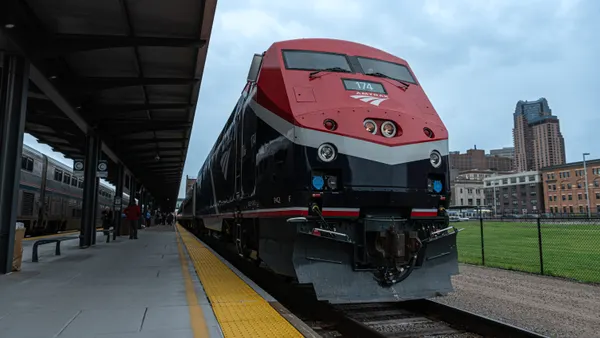Dive Brief:
- Five startups have been chosen to test their mobility solutions at the University of Michigan's TechLab at Mcity incubator, according to The Detroit News.
- Mcity, a "fake city" of sorts, creates an environment where startups can run their self-driving vehicles and other connected-car technologies in real-life conditions without the dangers of potentially harming the public during the honing process.
- The five startups are matched with students at the TechLab to further both hands-on learning and product development.
Dive Insight:
Mcity is a 32-acre space that has highways, roads, fire hydrants and even crash-test dummy style pedestrians. Connected car prototypes maneuvering through Mcity invisibly interact with these elements as well as with virtual vehicles and hazards. Mcity's success since opening last year has prompted the Michigan Department of Transportation to develop a larger autonomous vehicle testing site, which will have a loop to test the vehicles at high speeds.
The startups chosen for the fall program at Mcity cover a range of topics, from bicycle-to-vehicle communication to putting self-driving vehicles through harsh conditions. They benefit from using the "fake city" environment to improve upon their ideas, but they also get access to fresh talent interested in and willing to work in the field.
Detroit earned the nickname "Motor City" decades ago due to its reputation as an auto industry stronghold, but in reality, much of the Michigan population relied on that industry for jobs. When economic conditions there changed in the past decade with massive cutbacks in car manufacturing, the state lost huge portions of its population who sought jobs elsewhere. Although Mcity doesn't handle manufacturing, it does harness the area's automotive-focused talents to drive innovation. Blending the traditional automotive background with new technologies could breathe new life into the industry while creating a more versatile workforce.












